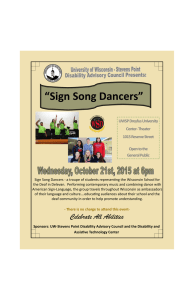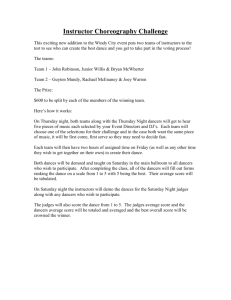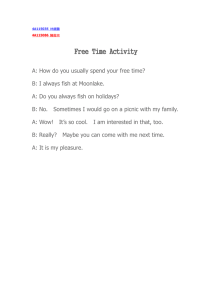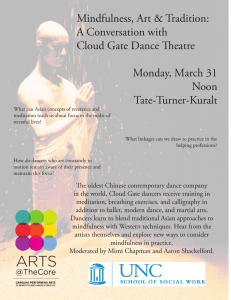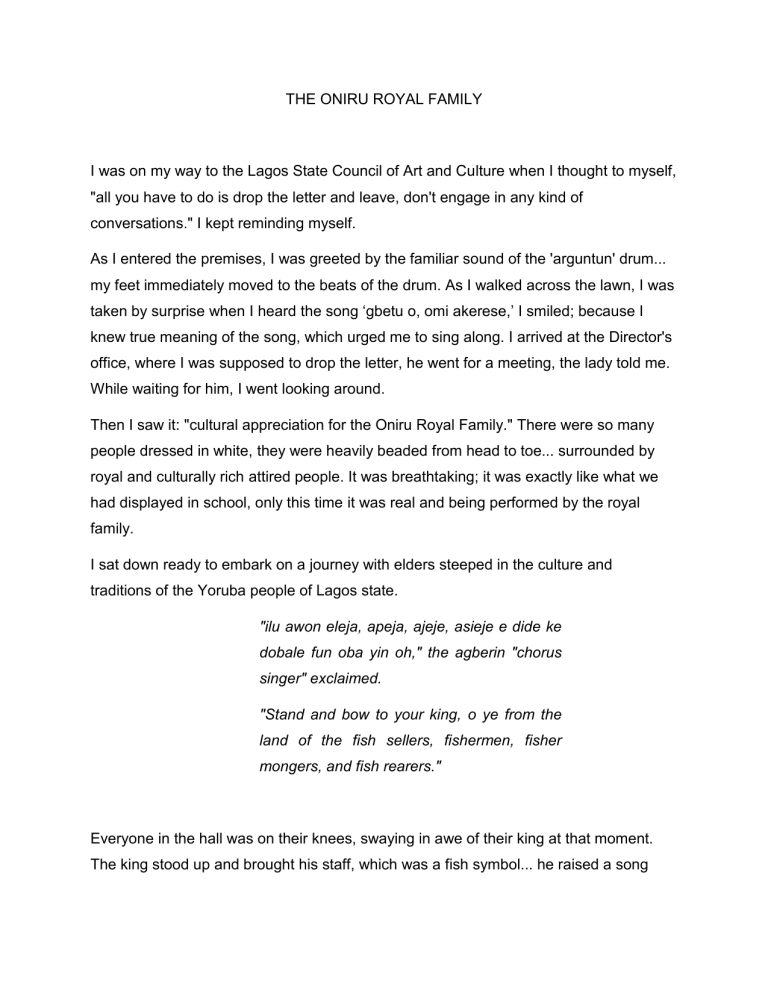
THE ONIRU ROYAL FAMILY I was on my way to the Lagos State Council of Art and Culture when I thought to myself, "all you have to do is drop the letter and leave, don't engage in any kind of conversations." I kept reminding myself. As I entered the premises, I was greeted by the familiar sound of the 'arguntun' drum... my feet immediately moved to the beats of the drum. As I walked across the lawn, I was taken by surprise when I heard the song ‘gbetu o, omi akerese,’ I smiled; because I knew true meaning of the song, which urged me to sing along. I arrived at the Director's office, where I was supposed to drop the letter, he went for a meeting, the lady told me. While waiting for him, I went looking around. Then I saw it: "cultural appreciation for the Oniru Royal Family." There were so many people dressed in white, they were heavily beaded from head to toe... surrounded by royal and culturally rich attired people. It was breathtaking; it was exactly like what we had displayed in school, only this time it was real and being performed by the royal family. I sat down ready to embark on a journey with elders steeped in the culture and traditions of the Yoruba people of Lagos state. "ilu awon eleja, apeja, ajeje, asieje e dide ke dobale fun oba yin oh," the agberin "chorus singer" exclaimed. "Stand and bow to your king, o ye from the land of the fish sellers, fishermen, fisher mongers, and fish rearers." Everyone in the hall was on their knees, swaying in awe of their king at that moment. The king stood up and brought his staff, which was a fish symbol... he raised a song "one I didn't know," but then the drummer began to beat the 'apepe' drum and a crowd of dancers filed in and began dancing. Everyone remained on their knees the entire time, as it was forbidden for the king of fishermen to dance in front of his subjects. I watched with interest as everyone seemed to be in sync with what was going on. The king danced, the chorus leader sang, and the dancers moved to the beats in space and time. Nobody went off key or moved out of time. It captivated me because I remembered missing a few dance steps in university ... but these people weren't professional dancers, they were people from all walks of life united by a community with a surviving culture and traditions. I could see their adoration for their king in their eyes, their respect for culture, their belief in their tradition, and their love for their community resonating in their bodies as I watched. I could see vibrations all over the people's bodies as they rose to their feet. They were happy. They all took their seats as various dancers arrived to perform their fish dance. "Fishing is a popular occupation of many tribes in Nigeria, although each tribe had their own different interpretation and representation of their fish dances... about 5 different dances from different tribes in celebration of the Oniru royal family. That was the first time I saw tribes come together, especially in light of recent events in my country, with each tribe threatening each other in a civil war. When I recall this cultural show, I am struck by everyone's cooperation and totalitarian attitude. If certain details are worked out, "art and culture and can actually bring peace to my country", and Art management for me was the right choice.
